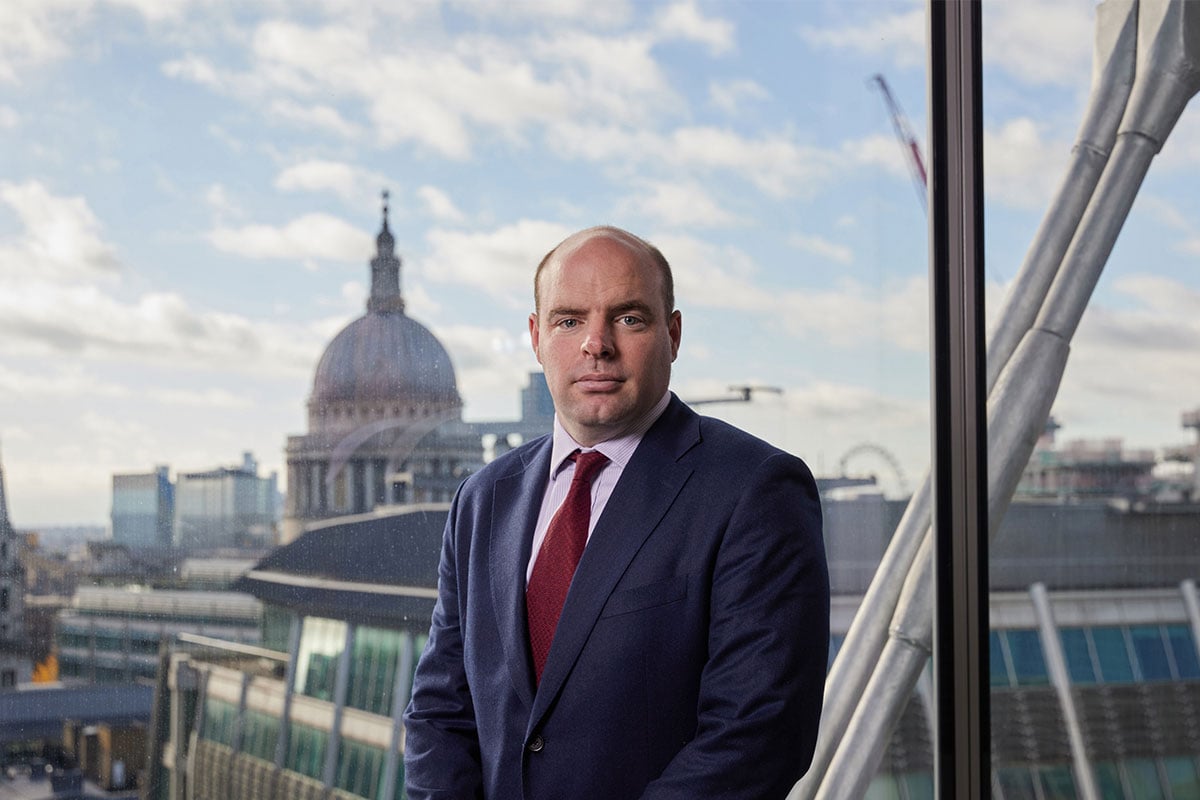How we talk about money: part three of a series of conversations

In the final part of our series, Hazel Bowen, Senior Wealth Planner and Harry Schofield, Investment Director, continue to discuss how we at Canaccord Wealth Management speak to our clients about their money and how we try and make financial planning as accessible as possible.
We spoke last time about some things clients are not always comfortable discussing. How do you break down these barriers as a financial planner and investment manager?
Harry Schofield (HS): I think it's a guided journey. I try to create the most informed client I can so they make informed decisions. For example, do they understand all the angles and the ramifications of say, having their child involved in their wealth? If they then decide they don't want them involved, no problem – so long as they are aware of the consequences, such as possibly paying more inheritance tax (IHT). It’s really the client’s choice.
Hazel Bowen (HB): I agree. It's about having honest and open conversations with clients, which you can only do by building trust, something fundamental to our work. I spend a lot of time with my clients explaining why I'm asking questions. As financial planners we know why we need to ask lots of questions, but our clients may not. It’s also important to be clear that we're here to advise, but not to tell people what to do, because it's their money and their life. Our relationship is a partnership: we bring the technical expertise, the ideas and the experience, and the client brings the details of their life and aspirations to the table.
Are there any other kind of trends that you have noticed around client concerns that they haven't been as vocal about in the past?
HS: We’re going through a period of discomfort with regards to interest rates, especially for those with outstanding liabilities (e.g. mortgages) that are due for renewal. We've had a prolonged period from 2009 to 2022 of lower interest rates. People got very comfortable with a mortgage of between 1%-2.5%, but people's mortgages are now more between 5%-6%. It's not necessarily the head of the family - who is often mortgage free, it's children and grandchildren trying to get on ladders or trying to remortgage.
I’m pleased that the next move for interest rates is likely to be a lowering and that should begin to ease people’s concerns on whether they can afford to pay back their whole mortgage and associated interest. In the meantime, it has been a major factor in investment thinking particularly for younger generations and a painful factor in constraining budgets.
It's useful to have a conversation about bringing that mortgage level down to a more affordable level. And there's no timescale on that sometimes.
HB: That's something I see a lot when I'm talking to clients as well. It's very easy for clients to think, ‘my mortgage is now more expensive, and I want to pay it off’. But what was the original objective for that money you’re now thinking about using to pay it off? If you have that money because you're saving for your future and you use it to pay off your mortgage, it's now illiquid and in your property – unless you remortgage, which defeats the object and may not even be possible if your circumstances change. If you've got money invested in the right place for something in the future, don't have a knee-jerk reaction. Let's do things in a considered way, which is what financial planners are here to help you do.
The other thing I see people talking about is the impact of VAT on school fees. Again, that comes back to cash flow planning: if you've got to find more money, do you need to start generating more income from your investments? Are you spending in places you don’t realise and could cut back?
Pensions are always a hot topic – with constant speculation about changes and clients wanting certainty, which is not always possible with the amount of regulatory change we see. But for most clients, we can still provide clarity on the best course of action – or inaction – for them.
HS: One final point for me is that, after 14 years of a Conservative government there’s now a new political party in charge after the general election. That makes some clients uncomfortable, not necessarily because they disagree with certain policies or politicians, but because it’s simply change.
We’re always here to talk through what the change could mean and how it could impact your investment portfolio or financial plans – or more importantly, your life.
HB: My key message for everyone is that your money is secondary to what you want to achieve in your life. For anyone who is nervous talking about money try starting with your personal goals in mind and have conversations with your friends, family, and children. We should all talk about money – it upskills everyone.
Also keep in mind that you don't need to be an expert on pensions. You don't need to be an expert on investments. Because that's our job. But you do need to get involved in the conversation, because although we have the knowledge, ideas and expertise about how to make your money work for you, you are the most knowledgeable person about what your goals in life are.
This is the third and final part of a series of conversations with Hazel Bowen and Harry Schofield on the accessibility of financial planning and how to talk professionals about your money. The series aims to provide both a financial planning and investment management perspective.
If you’re interested to discuss any topic in this article, or others in the series, please do not hesitate to get in touch. We promise we are friendly, open, and honest, no matter what your objective or vision.
You may also be interested in:
- How we talk about money: part one
- How we talk about money: part two
- Trusts for estate planning: what, when and how?
New to Canaccord?
If you are new to wealth management and would like to learn how this can benefit you, we can put you in touch with our team of experts that can help.
Investment involves risk. The value of investments and the income from them can go down as well as up and you may not get back the amount originally invested. The information provided is not to be treated as specific advice. It has no regard for the specific investment objectives, financial situation or needs of any specific person or entity. The tax treatment of all investments depends upon individual circumstances and the levels and basis of taxation may change in the future. Investors should discuss their financial arrangements with their own tax adviser before investing.
Find this information useful? Share it with others...
Investment involves risk and you may not get back what you invest. It’s not suitable for everyone.
Investment involves risk and is not suitable for everyone.
